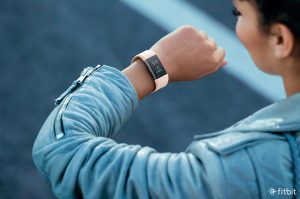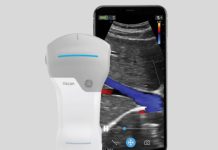Come the New Year, thousands of patients will be getting a Fitbit device under their health plan. Fitbit has partnered with Medicaid to offer the wearable device to WellCare of Georgia patients with diabetes.
Starting January 1, nearly 4,000 patients with type 1 and type 2 diabetes will be eligible to receive a Fitbit device under their Medicaid plan, following their annual exams in 2020. These patients will also receive educational and coaching materials via the Fitbit platform.
“It’s really a business we’ve been in for many years,” said Amy McDonough, Senior Vice President and General Manager, Fitbit Health Solutions, in a recent interview. “What we’re excited about with this partnership is it’s helping us to broaden the populations we’re able to reach.”
Fitbit has already tapped into the employer healthcare market, and works with more than 1,600 employers under 100 health plans. The company has already provided devices as a benefit to Medicare enrollees as well, and it will be under three insurers’ Medicare Advantage plans by next year.
This new collaboration, a first for Fitbit and Medicaid, could give the company a major stake in a Medicaid’s large market since approximately one in five people in the U.S. are covered by the health plan.
Overall, the partnership may also encourage WellCare’s patients to follow through on important exams, including annual eye exams, which is critical to managing diabetes. It may also encourage patients to be more active by getting engaged with the wearable since Fitbit helps track other exercise, sleep, and nutrition habits.
Walking, alone, can have a significant impact on patients managing the disease. In fact, taking a daily stroll for least 30 minutes was shown to reduce the risk of Type 2 diabetes by approximately 50% and was also associated with a reduction in mortality, according to a study in the World Journal of Diabetes.
Users can also connect to others within the Fitbit network, which McDonough believes makes people more accountable. When there’s a social network tracking and supporting your goals, these personalized insights help motivate us to get more out of these devices. “A good number of our users are looking to lose weight, manage their weight, or look at a good resting heart rate,” said McDonough. “Those are things that you can make a meaningful impact [specifically to patients with diabetes] in just a couple of months.”























